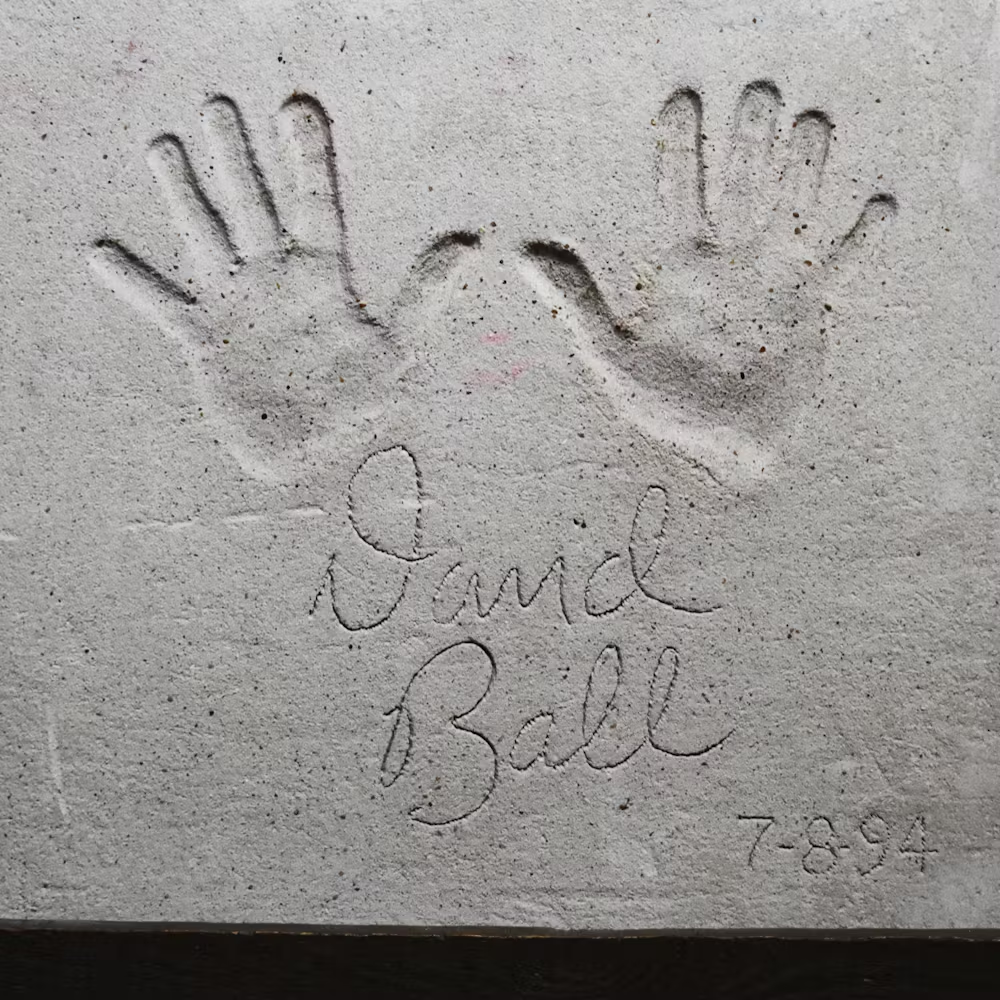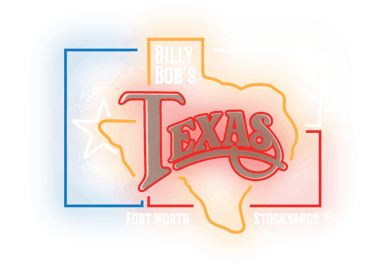
David Ball
HISTORY WITH BILLY BOB’S:
On July 8, 1994, David Ball cemented his hands on to our “Wall of Fame.”

ABOUT DAVID BALL:
Vocalist and songwriter David Ball is a country artist whose music respects the traditions of classic honky tonk sounds while also leaving room for folk and blues accents. After earning a cult following with the acoustic country act Uncle Walt’s Band, whose sound anticipated the Americana movement, Ball found fame with his 1994 album Thinkin’ Problem and its title track, a superb exercise in neo-traditionalist country that often saw him compared to acts like George Strait and Randy Travis. In many respects, however, he had more in common with Dwight Yoakam in his mix of old-school sounds with a newfangled energy and sense of sonic adventure. While Thinkin’ Problem was Ball’s best and most popular album, after he left the major labels behind, he welcomed the freedom to embrace more traditional sounds on independent releases such as 2001’s Amigo and 2004’s Freewheeler.
David Ball was born in July 9, 1953 in Rock Hill, South Carolina, and grew up in Spartanburg, a town 60 miles to the west. His father was a Baptist minister and his mother played the piano. When he was little, Ball picked up a ukulele and learned to play, and he graduated to the guitar when he was 12. When Ball was in junior high, he began writing songs and played bass in the school band while playing country tunes with his friends, occasionally performing at school talent shows. Ball made friends with two other local music fans, Walter Hyatt and Champ Hood, and they started playing music together that was one-part traditional country, one-part bluegrass, and one-part Western swing. The trio called themselves Uncle Walt’s Band (with Ball singing lead and playing upright bass), and after winning over audiences in South Carolina, they relocated to Nashville, hoping to break into the big time. Uncle Walt’s Band never landed a breakout hit or a major-label deal, but their independently released albums were well-regarded and they found a loyal following in Austin, Texas, where their smart but unpretentious sound was a good fit for the city’s well-established singer/songwriter community. The group made a home in Austin, but a wider audience eluded them, and they broke up in 1983.
By the late ’80s, Ball had returned to Nashville and was making ends meet as a contract songwriter when he landed his first record deal as a solo artist with RCA. Between May 1988 and September 1989, they released three singles from Ball, “You Go, You’re Gone,” “Steppin’ Out,” and “Gift of Love” (curiously they all had the same B-side, “I Wish He Was Me [And She Was You]”), but sales were middling at best and an album Ball cut for the label went unreleased. He fared better when he signed with Warner Bros. several years later; his first single for Warner, 1994’s “Thinkin’ Problem,” was a major hit that rose to number two on the Country Singles chart (it also crossed over to the pop chart, peaking at 40), while the album of the same name went platinum and spawned four other singles that entered the Country charts (“When the Thought of You Catched Up with Me” peaked at number seven and “Look What Followed Me Home” rose to number 11). The success of Thinkin’ Problem prompted RCA to finally bring out Ball’s unreleased 1989 album in 1994, simply titled David Ball (it also appeared as Steppin’ Out).
Starlite Lounge
Ball released two more albums for Warner Bros., 1996’s Starlite Lounge and 1999’s Play, before he moved to the independent Dualtone label in a bid for greater creative freedom. (During his Warner period, Ball was invited by Bob Dylan to contribute a performance of “Miss the Mississippi and You” for his 1997 multi-artist set The Songs of Jimmie Rodgers: A Tribute.) Ball’s Dualtone debut, 2001’s Amigo, included the song “Riding with Private Malone,” which became one of the rare indie label country singles to become a major commercial success, peaking at number two on the country singles survey. The album also earned enthusiastic reviews from critics, as did 2004’s Freewheeler, which appeared on Wildcatter Records. 2004 also saw the release of Beautiful Dreamer: The Songs of Stephen Foster, another multi-artist tribute album, with Ball singing “Old Folks at Home (Swanee River).” 2007’s Heartaches by the Number (on Shanachie Records) included one original song, “Please Feed the Jukebox,” along with covers of ten country classics. Ball had 11 fresh originals at hand for 2010’s Sparkle City, which found him jumping labels again, this time to E1 Entertainment. A holiday album, The Greatest Christmas, arrived in September 2011 in time for yuletide festivities.
Anthology: Those Boys From Carolina, They Sure Could Sing…
After a long recording layoff in which Ball devoted his time to touring, he issued the album Come See Me in September 2018. That same year, the celebrated reissue label Omnivore Recordings brought out a collection of material by Uncle Walt’s Band, Anthology: Those Boys from Carolina, They Sure Enough Could Sing, while 2019 saw the same label release an expanded edition of UWB’s 1974 debut (which was issued as Uncle Walt’s Band and Blame It on the Bossa Nova). Omnivore next teamed up with Ball for an expanded reissue of Thinkin’ Problem, which came out in 2020 and included his original songwriting demos for several of the tunes.
Debut Date
July 8th, 1994
# of Appearances
10





